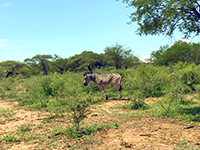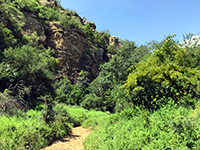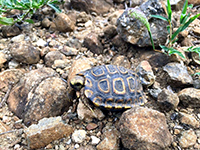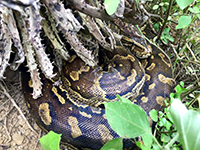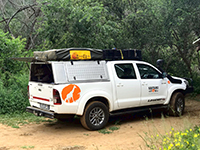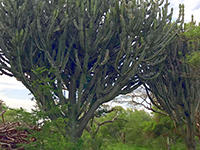ASU entomologist collects unique data on the evolutionary development of carpenter moths in the territory of South Africa
The first week of the expedition with the participation of ASU scientist took place in three protected areas of the Republic of South Africa: Camberland, Mshlopeni and Pangola. All these natural reserves are located in KwaZulu-Natal, one of the provinces of South Africa.


"The greatest results have been obtained in Mshlopeni and Pangola, which are located in the area of Zululand. Here the Zulu, the original inhabitants of South African savannas, still live. The Zulu tribes used to stand up against the white settlers in the past, and the main stages of this war have even been filmed in Hollywood. Now this is only the history, of course. Together with the colleagues from the Institute of Ecological Problems and Evolution under the Russian Academy of Sciences and the Moscow Society of Naturalists (with the support of the Museum of the Province of Natal) we have already visited the most interesting places of the Zulu territories. These virgin territories are almost unaffected, so you can find many animals there, such as giraffes, various antelopes, warthogs, monkeys, and a lot of reptiles – lizards and snakes," Roman Yakovlev said.
The scientist of Altai State University noted that each of the colleagues in the expedition has their own goals and tasks. Professor Yakovlev is working on collecting materials for molecular genetic studies within the initiative project of ASU entomologists on the topic "Lepidoptera, Cossoidea of the World Fauna: Taxonomy, Molecular Phylogeny, Zoogeography" supported by the Russian Foundation for Basic Research (RFBR).
"The average temperature in the area where our expedition is carried out is about 30-32 degrees Celsius in the daytime," Roman Yakovlev said. “My main tasks are to collect fresh material on lepidopteran Cossoidea for morphological and molecular genetic studies within the framework of the RFBR initiative project. We will probably be able to obtain unique data on the evolutionary development of primitive carpenter moths."
